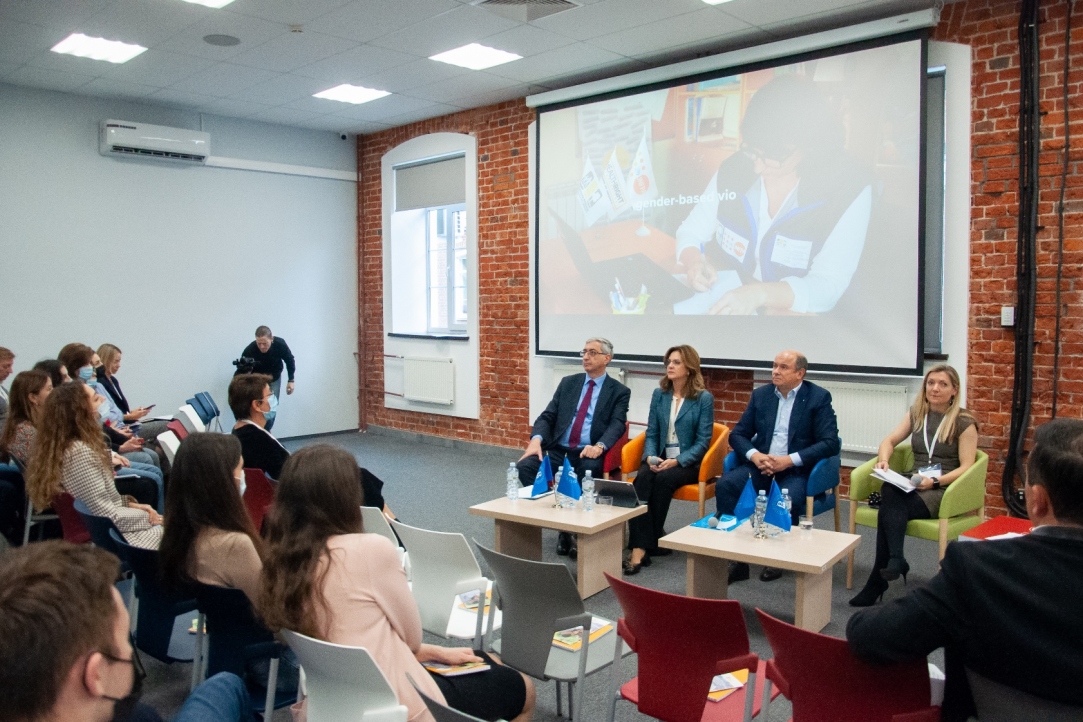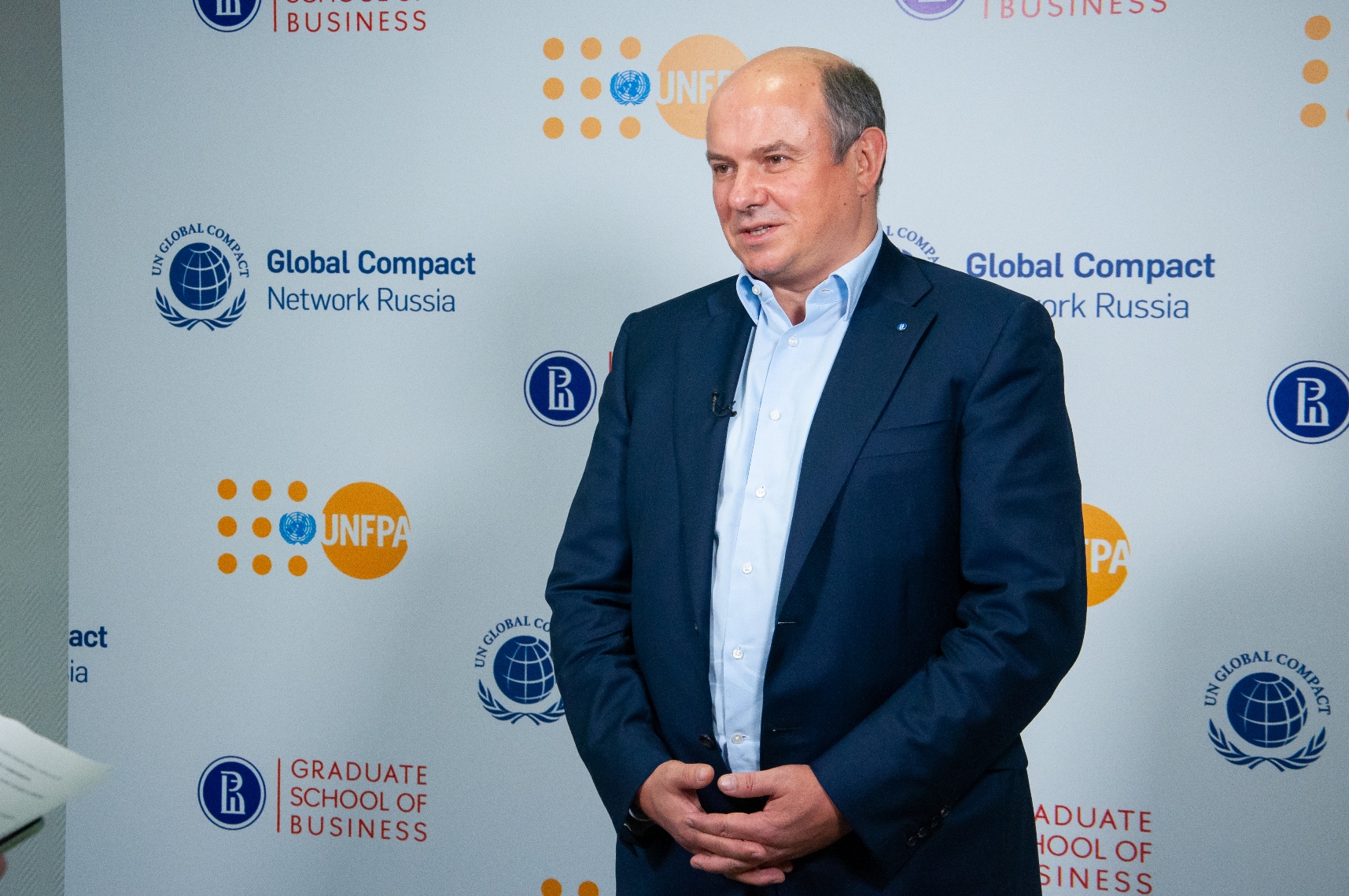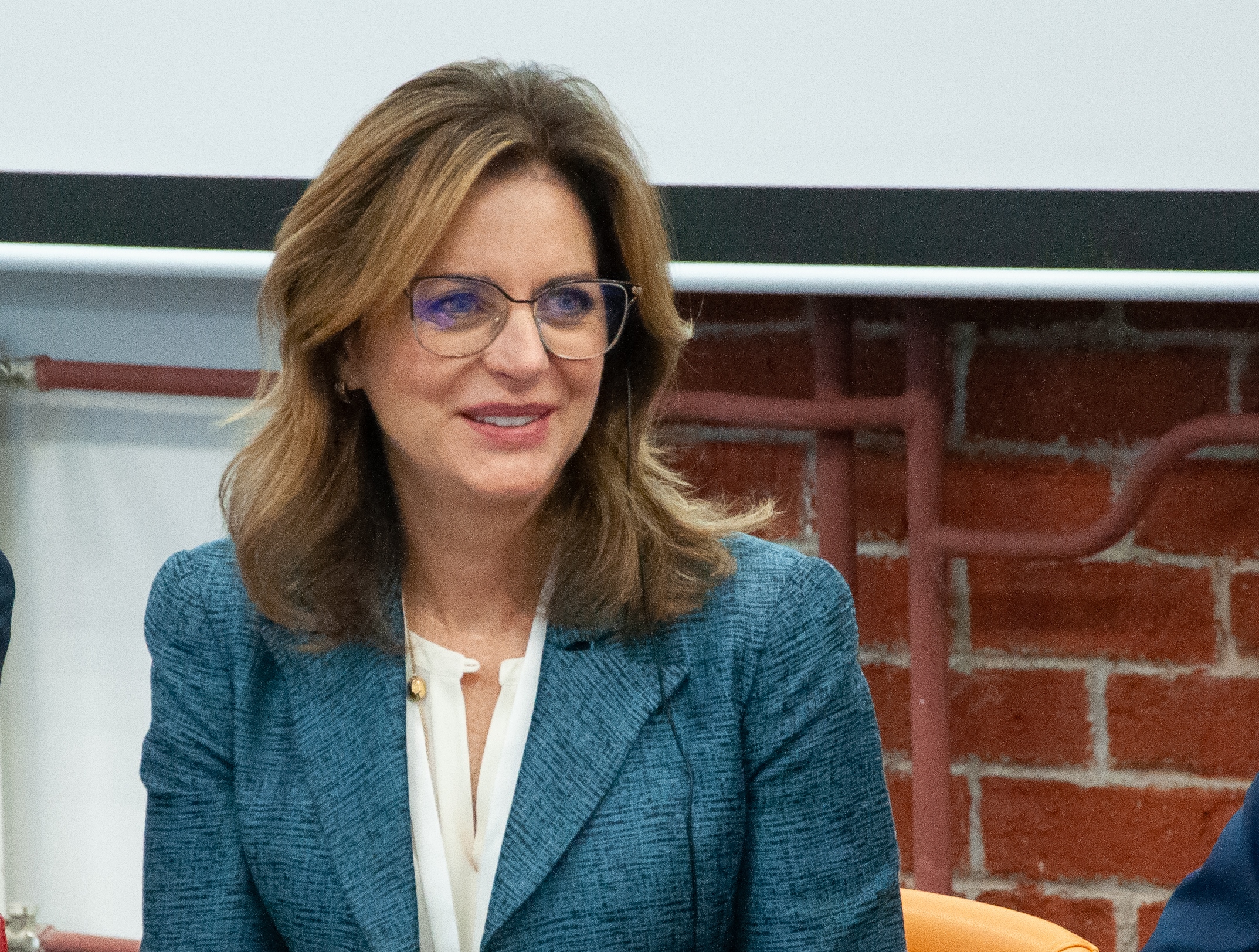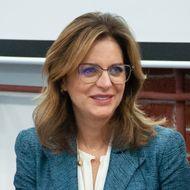Experts Discuss Changing Corporate Social Responsibility in Light of the Pandemic

The pandemic has forced many companies to rethink their approach to charity and to change their priorities in terms of corporate social responsibility. Meeting the needs of the elderly, women, and people with disabilities is a top priority, and the social agenda is becoming a key part of HSE University’s educational programmes. These topics were discussed at the business dialogue on Corporate Social Responsibility Beyond COVID-19 hosted by the HSE Graduate School of Business.
Valery Katkalo, HSE First Vice Rector and Dean of the Graduate School of Business, opened the business dialogue on Corporate Social Responsibility Beyond COVID-19 by explaining that corporate social responsibility and sustainable development are key elements of a modern business education and management studies. The event, which was organized by the HSE Graduate School of Business and the United Nations Population Fund (UNFPA) with support from the UN Global Compact Network Russia, invited Russian and international companies to discuss corporate social responsibility in the context of the pandemic.

‘Social issues are very important to us. When we talk about effective management in modern companies, the effective and sustainable management of staff—a company’s most valuable asset—is a major focus, as is the development of a corporate culture,’ said Mr. Katkalo.
He also noted that these issues are of interest to HSE University not only in an academic and research context. The Graduate School of Business is currently working to radically update its management curricula. In 2022, the school will launch a new master’s programme in sustainable business development in partnership with leading companies from Russia and abroad.
HSE University is a growing hub in the post-Soviet space for education, expertise and research—including business education, explained HSE University Vice Rector Ivan Prostakov. He also highlighted that HSE’s partners can benefit greatly from the university’s expertise in social policy, corporate policy and social responsibility.

‘We are actively involved in the global sustainable development agenda. Out of the [UNFPA’s]17 Sustainable Development Goals, five or six of them are directly social and demographic in nature, and concern migration, poverty, healthcare and education,’ said Mr. Prostakov.
Alanna Armitage, UNFPA’s Regional Director for Eastern Europe and Central Asia, said that the elderly, women, and people with disabilities have been hit particularly hard by the pandemic. ‘Women around the world have practically disappeared from the economy, leading to lost family incomes and greatly increased poverty. COVID-19 has also had a devastating effect on the elderly, who are at greater risk of becoming ill. Today, many older people are unable to buy food and medicine,’ she said. ‘There is also increased discrimination against people with HIV, many of whom can’t get the same kind of support they had before. The same is true of people with disabilities, who have limited access to education and medicine even under normal circumstances. They are suffering a great deal at the moment.’

Under the UN Global Compact, companies around the world approach the sustainable development agenda as a system of challenges and problems that business plays a major—sometimes critical—role in solving. Marina Vashukova, Executive Director of the Global Compact Network Russia, explained that Russian business is currently experiencing a period of steady progress, growth in competition and sustainable development practices. Transformation is taking place at all levels, and sustainable development strategies are being integrated into corporate business strategies. The meeting’s participants, who included representatives of major Russian and international companies, discussed the pandemic’s influence on these strategies and which areas are now priorities.
Tatiana Andreeva, HR Director of Volvo Car Russia, talked about the company’s programme to support parents, which was launched on April 1 of this year. Now, any new parent can take leave with 80% pay until their child turns three years old. This is the company’s way of supporting equal parenting roles. Women working at Volvo are also entitled to maternity leave with 100% pay. The company also recently decided not to return to full-time on-site work, with employees now able to work from home two days a week.
The pandemic has also been a catalyst for social programmes at NLMK Group, according to Tatiana Rozhkova, Head of the Social Policy Department at the company. Investment in the social sphere almost doubled in 2020, with the majority of funds going towards healthcare programmes and support for regions where the company operates. Another priority area in the company’s charity agenda is working with educational institutions in higher and intermediate professional education, including efforts to make online resources accessible to students. She also highlighted that during lockdown, the number of volunteers to help the elderly doubled.
One positive outcome of the pandemic has been greater accessibility to inclusive employment, explained Evgenia Chistova, Head of Sustainable Development at VimpelCom. ‘We all experienced restrictions to some extent. There was a whole range of limitations on how and when we could leave home and do the things we were used to. This experience gave us an opportunity to rethink employment opportunities for people with disabilities. We are developing specialized professional orientation programmes in high-demand digital professions for those with disabilities. I believe that in the near future, we won’t need to have this conversation anymore, because these will be fully fledged vacancies for fully fledged applicants on the open market,’ she said.
Valery Katkalo, HSE University First Vice Rector, Dean of the Graduate School of Business

We cannot be successful in any competitive field, market, or sphere without examining the experiences, business models and approaches taken by our competitors and partners. This makes us all stronger. And this also applies to today’s event, which we have organized in cooperation with the United Nations Population Fund and leading Russian and international corporations. Everyone here wants to make sure that sustainable development becomes a key component of all university-level business educations, from bachelor’s degrees to Executive MBAs and corporate staff training programmes at the highest levels of business.
Alanna Armitage, UNFPA’s Regional Director for Eastern Europe and Central Asia

UNFPA works with numerous partners, and I am very happy to be here in Russia to meet our key partners from the government, academic institutions, and now the private sector. We believe that this multi-sector approach is the key to achieving our Sustainable Development Goals. By working together, we can overcome the terrible impact of COVID-19 and apply the lessons we’ve learned to build a fairer, stronger and more equal society.
See also:
Early-Career Researchers Discuss Cooperation between Russia and Arab States
HSE University has hosted a conference entitled ‘Russia—The Arab World: Digital Future and Youth Cooperation,’ organised by the Faculty of World Economy and International Affairs (WEIA). The meeting took place in the run-up to the first Russian–Arab summit, due to be held in Moscow on October 15, 2025.
Pivot to the East: A Comprehensive Study of the Cultural and Civilisational Centres of the Non-Western World is the Top Priority
China and the Chinese world, South Asia, Southeast Asia, the Arab countries, Iran, Turkey, Central Asia and Africa are gaining new significance in Russia’s foreign policy. However, we do not know enough about the Eastern countries. It is necessary to change the priorities in education, starting from grammar school. Prospects for the development of domestic Oriental studies in the context of the new stage in the development of the system of international relations were discussed at a round table at HSE University.
‘I Admire HSE Students’ Eagerness to Learn, to Discuss, to Broaden Their Perspectives’
Robert Romanowski was a ‘Digital Professor’ at HSE University in November 2021. In his interview for the HSE News Service, he talked about the specifics of online teaching, his course on Strategic Branding, and the skills that are essential for marketing professionals today.
Russia and Africa: Time to Expand Cooperation
There is major potential for economic and humanitarian cooperation between Russia and African countries. Particularly, Russian organisations and universities can help transfer competencies and knowledge in the fields of agriculture, energy, industrial production, environmental management, climate change, and public administration. Experts and representatives of African embassies in Russia discussed these issues at the round table ‘Russia-Africa Sharing Knowledge’ hosted by HSE University.
The Brain in Space: Investigating the Effects of Long Spaceflights on Space Travellers
As part of an international project conducted with the participation of Roscosmos and the European Space Agency, a team of researchers used differential tractography to analyse dMRI scans ofcosmonauts’ brains and found significant changes in brain connectivity, with some of the changes persisting after seven months back on Earth. The paper is published in Frontiers in Neural Circuits.
HSE University-Perm and the Training Centre of the Uzbek Ministry of Finance Sign Cooperation Agreement
HSE University in Perm has become the first academic partner of the Training Centre under the Ministry of Finance of the Republic of Uzbekistan. The parties have signed a cooperation agreement in education and research.
‘As We Fight Climate Change and Poverty, the Focus on Personal, rather than Social Goals, may Prove Harmful over Time’
The 11th International LCSR Workshop of the HSE Ronald F. Inglehart Laboratory for Comparative Social Research, ‘Recent Advances in Comparative Study of Values’, took place as part of the XXIII Yasin (April) International Academic Conference. HSE News Service talked about the study of values and current changes in academic life with Ronald Fischer, who presented an honorary paper ‘Why We Should Aim for Systematic Non-Invariance in Cross-Cultural Research’ at the workshop.
Stress Disorders More Prevalent among Doctors due to the Pandemic
Psychologists from HSE University have joined their peers from Ekaterinburg to look into the impact of the pandemic on the mental health of Russian doctors. They found that medical staff are suffering from stress, anxiety, and depression more often than before. The results of the study were published in International Journal of Environmental Research and Public Health.
COVID-19 Pandemic Brought Humanity Closer to the Next Stage of Technological Revolution
The outbreak of the pandemic posed some serious challenges to the world that required the concentration of many people’s efforts and the use of the latest technologies. This has led to powerful technological breakthroughs, particularly in medicine. HSE University researchers Leonid Grinin, Anton Grinin, and Andrey Korotayev published a paper in which they assessed the impact of COVID-19 on social development. The authors concluded that the pandemic will considerably accelerate humanity’s transition to a new stage of development, but can also cause significant social strain.
Experts on the Consequences of COVID-19: The Pandemic Gives Impetus to Science and Technology
TheHuman Capital Multidisciplinary Research Centre and HSE University, in cooperation with the World Bank, held the conference ‘New Challenges of Demographic, Epidemiological and Medical-Technological Development: Search for New Models of Healthcare Development.’ The participants discussed whether the healthcare system was prepared to face the pandemic, how the latter affected lifespans and excess mortality rates, whether we can trust statistics, and what we should do to see ‘the light at the end of the pandemic tunnel.’


